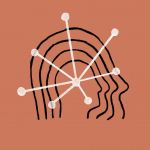New Seed-Coder-8B model from ByteDance outperforms larger competitors

ByteDance, known as the creator of TikTok, has released a new language model for programming called Seed-Coder-8B. This is a small model that shows amazing results in code-related tasks. It outperforms even some much larger solutions, including Claude Sonnet 3.7 and o1-mini.
The model was released in 3 versions: base, instructive, and a model with reasoning. It has a context window of 32,000 tokens.
What makes this model special is primarily the approach to data collection and processing. ByteDance used a technique similar to the approach of DeepSeek company, but significantly improved. Instead of multiple manual filters to clean the source data, they created a single filter based on artificial intelligence.
For this, Chinese developers specifically trained a small model to evaluate code quality based on parameters such as readability, modularity, clarity, and reusability. Then this model was applied to the entire dataset, discarding the most problematic files. This made it possible to get rid of approximately 10% of the original dataset, which was essentially just garbage.
Special filters based on artificial intelligence evaluated code from GitHub and other web sources, filtering out low-quality examples. Thus, the developers filtered data with a volume of approximately 2.3 trillion tokens.
The result is impressive! Seed-Coder outperforms open-source analogues of its size on all tests, including generation, autocompletion, and reasoning. And in some cases, even larger models. At the same time, the models are completely open for use and research.
I think it is the high specialization that allows achieving superior results in a specific area while maintaining a compact size. This opens the way to a multitude of highly specialized models instead of a single universal one. Technical report, repository, and model weights for Seed-Coder-8B are in the description.





